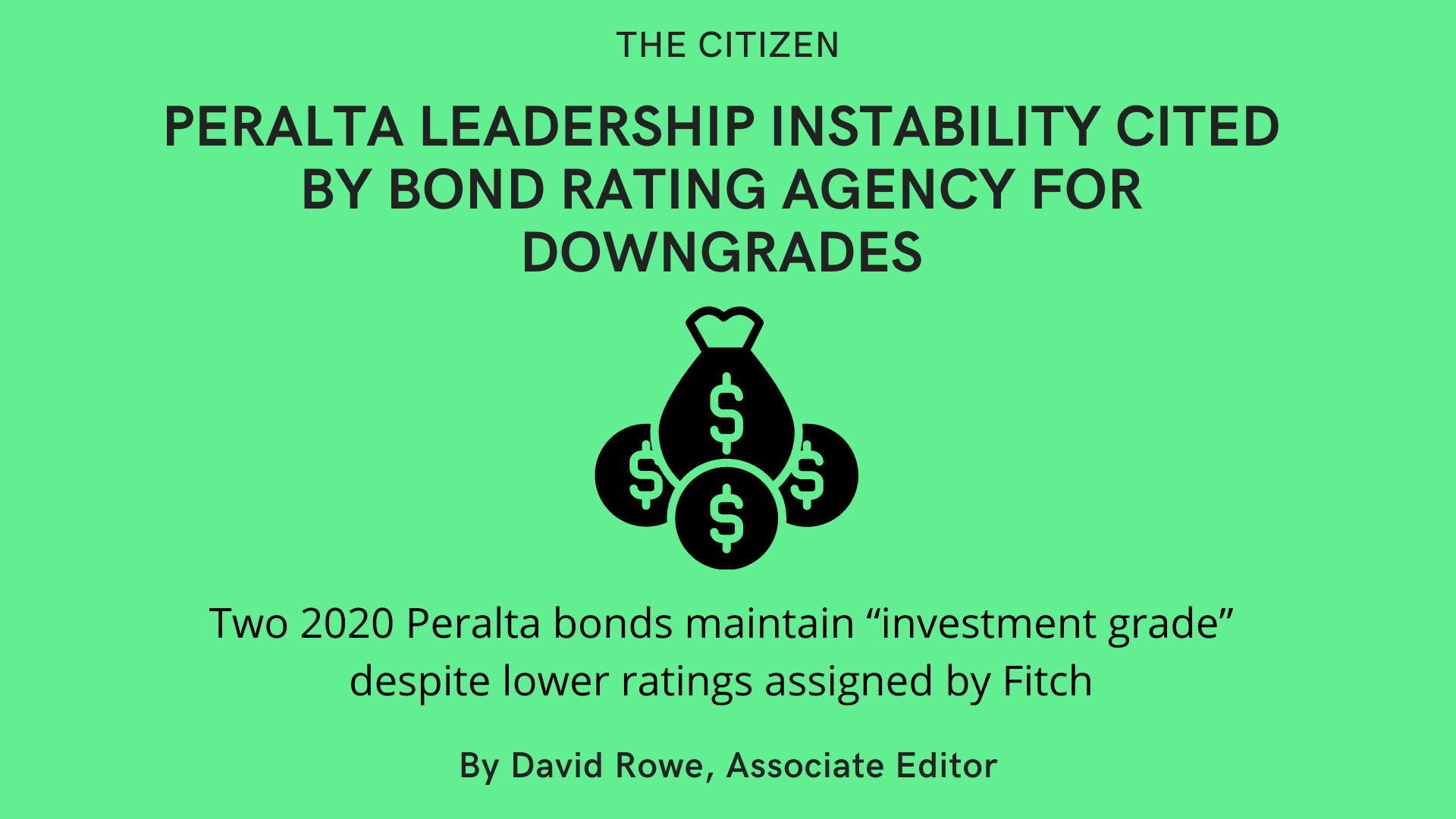
Fitch Ratings, one of the “big three” firms providing ratings for municipal bonds, issued a press release on March 24 announcing the downgrade of two 2020 general obligation bonds issued by the Peralta Community College District. Fitch also revised its rating outlook for Peralta from “stable” to “negative.”
The primary reason cited by Fitch for the downgrades was its “concern about consistent turnover in the highest administrative levels” according to a press release. Fitch pointed out that “two chancellors have resigned” since the district drafted a five-year plan to address concerns raised by the Accrediting Commission for Community and Junior Colleges (ACCJC). Fitch believes this turnover “put(s) into question the district’s ability to execute the plan.”
Mark Johnson, Peralta’s executive director of marketing, communications & public relations, pointed out in an email to The Citizen that “the search for a permanent chancellor is well underway by AGB Search, with screening and interviews to be scheduled in May, a selection in June, and the new chancellor expected to start on or near July 1.”
In a Zoom call with The Citizen, Karen Ribble and Graham Schnaars., the two Fitch analysts who prepared the report, emphasized that the new AA- rating for the Peralta bonds is still considered “investment grade” and represents the fourth lowest risk category on the Fitch scale (AAA, AA+, AA, and AA-).” Any bond with a BBB- rating or above is considered investment grade by FItch. The lowest grade on the Fitch scale is a D.
Peralta’s bonds are also rated as investment grade by the other two primary bond rating companies:Moody’s and Standard & Poor’s.
Johnson reiterated this point by observing “the District’s current AA- rating represents very high credit quality and very strong capacity for payment of financial commitments.”
Schnaars said Fitch relies primarily on public information in developing bond ratings. This includes “audits, budgets, and any soft of financial disclosures.” According to the analysts, the next step is to “sit down and talk with the financial management teams at each of the places that we rate to…dive a little bit deeper and get a little bit more information.”
Since the 2020 bonds were already sold by the Peralta district, Schnaars said the Fitch downgrade will not affect the funds that were raised. The only possible impact will be on current bond holders seeking to sell them, according to Schnarrs.. Given the revised rating is still investment grade and the yields are relatively low, Schnaars described the impact on the resale value of the bonds as “indeterminable.”
Bonds are the primary method used by school districts to raise funds. According to Investopedia, purchasers of those bonds are essentially loaning money to the district “in exchange for a set number of interest payments over a predetermined period.” At the end of that period, the bond reaches its maturity date and the full amount of the original investment is returned to the bond holders.
Interest payments from municipal bonds are generally exempt from both federal and state taxes, making them more attractive to investors.
Municipal bonds also have a lower risk of default than corporate bonds do. According to Investopedia, “the 10-year average default rate for investment grade municipal bonds was 0.10%, compared with 2.28% for corporate bonds.”
Despite the lower risk, there are instances of government agencies defaulting on municipal bonds, which is the reason Fitch and the other agencies issue ratings to provide investors with “indications of the likelihood of repayment” according to the Fitch site.
Johnson closed his email by saying: “As we move forward, we hope that a smooth transition to a new chancellor, positive news on the District’s accreditation, and successful efforts to increase enrollment will not only be seen as positive developments by District stakeholders but also be seen by the various rating agencies and investors as positive developments in terms of the District’s credit profile.”


























